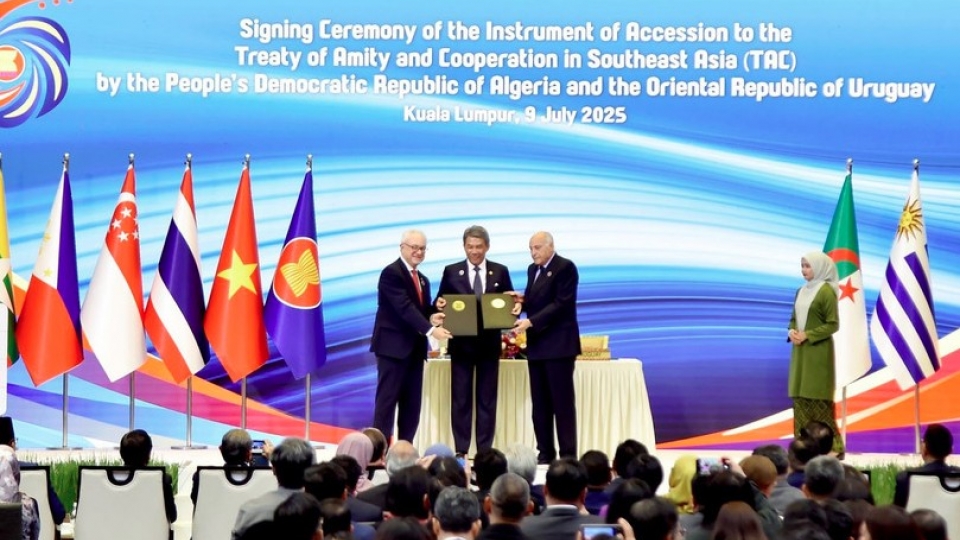Vietnam’s steadfast commitment helps shape ASEAN’s future: Thai scholar
Vietnam's steadfast commitment to multilateralism, open market, and regional peace has played a significant role in shaping the Association of Southeast Asian Nations (ASEAN)'s agenda, Thai scholar Kavi Chongkittavorn has said.

In an interview with the Vietnam News Agency's resident correspondent in Bangkok on the occasion of the 30th anniversary of Vietnam’s accession to ASEAN (July 28, 1995 – 2025), Kavi noted that Vietnam had identified economic development and national security as its top priorities from the outset, which have driven its strong regional and global integration.
According to the scholar, three decades on, Vietnam has emerged as a proactive and dynamic member of ASEAN, known for its highly regarded initiatives. The country has not only effectively leveraged ASEAN’s economic cooperation frameworks to advance domestic reforms, but also expanded its development reach regionally and globally, particularly in attracting investment, promoting trade, and fostering sustainable growth.
Under the leadership of the Communist Party of Vietnam, the country has demonstrated a strong ability to adapt its strategies flexibly in response to both domestic and international changes, the scholar noted, adding that Vietnam’s successful signing of major trade agreements, including the deal with the US, stands as clear evidence of the country’s growing geo-economic and economic diplomacy capacity.
Kavi affirmed that Vietnam is well-positioned to take on a leadership role in ASEAN in three key areas - serving as a “stabilising force” to reinforce ASEAN’s centrality amid intensifying geopolitical competition; acting as a dynamic model of socio-economic transformation that helps bridge development gaps across the 675-million-strong bloc; and advancing ASEAN’s inclusiveness toward a people-centred community, contributing to the realisation of the ASEAN Community Vision 2045.
He stressed that amid growing uncertainties in the Indo-Pacific region, ASEAN must continue to maintain strategic balance with major powers through constructive dialogue. In this process, Vietnam can serve as a “bridge,” thanks to its practical and flexible relations with both the US and China, built on a foundation of mutual benefit.
The scholar expressed his hope that by 2045, Vietnam will become a leading nation in economic integration and innovation within ASEAN. He said with a young workforce, a rapidly growing technology sector, and strong digital transformation policies, Vietnam has the potential to drive ASEAN’s collective initiatives for sustainable growth and help build a resilient, adaptive, and inclusive ASEAN Community in line with the ASEAN Vision 2045.
Vietnam has established itself as one of the region’s leading market economies, Kavi said, noting that if the country maintains its current growth momentum, it will not only continue to rise strongly but also play an increasingly important role in shaping ASEAN’s future.




